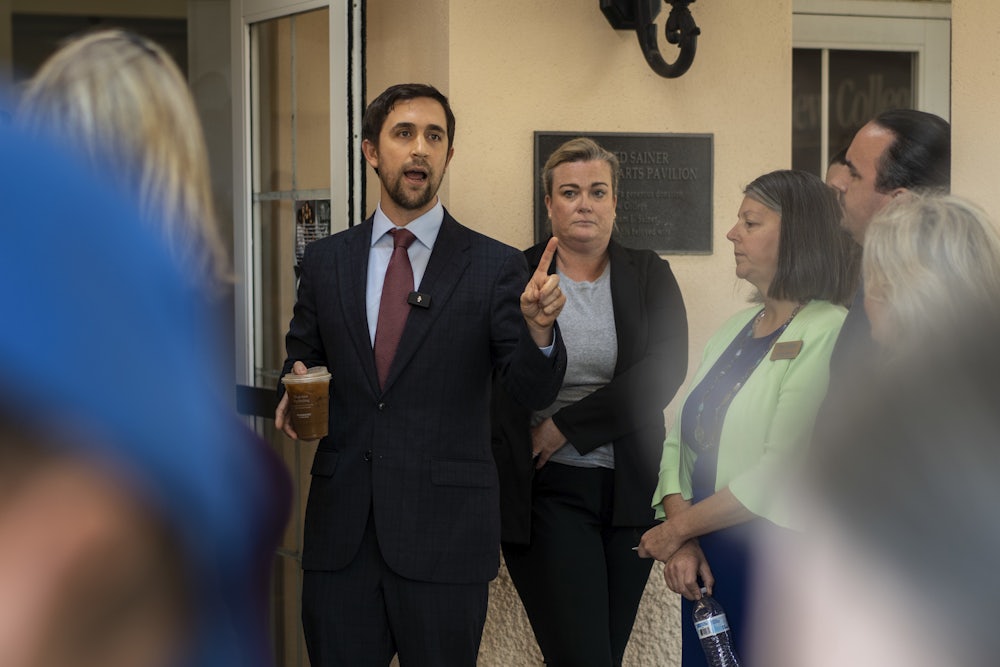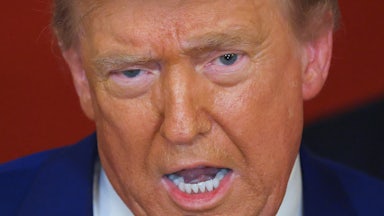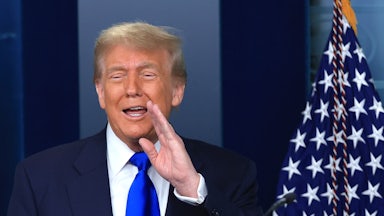On paper, Christopher Rufo, the conservative activist who recently was appointed by Florida Governor Ron DeSantis to sit on the board of a small Sarasota liberal arts college whose curriculum the governor dislikes, presents his credentials as impeccable: Georgetown University for undergrad and “a master’s from Harvard,” according to his biographical page on the Manhattan Institute’s website.
But that description, and similar ones on Wikipedia, in the press release DeSantis’s office sent out, and on Rufo’s personal website, are at the very least misleading. Rufo received a Master’s in Liberal Arts in Government from Harvard Extension School in 2022, the school confirmed in an email to The New Republic.* Harvard Extension School, in a nutshell, is part of the renowned institution, but it is not Harvard as most people know it (a Harvard student once joked that it’s the “back door” to Harvard). The school describes itself as an “open-enrollment institution prioritizing access, equity, and transparency.” Eligibility for the school is, according to its website, “largely based on your performance in up to three requisite Extension degree courses, depending on your field, that you must complete with distinction.” High school grades and SAT and ACT scores aren’t required at the institution.
Rufo, in an email, disagreed that there was any difference between Harvard Extension School and any other school. He said he was unaware of any debate over whether HES should be referred to differently than any other graduate degree from Harvard.
Harvard Extension
School is meant to be a way for a larger swath of people to gain access to Harvard
and receive some kind of accreditation from it. Access to the school is not entirely a given. According to a Business Insider article, “students are required to achieve a B minimum grade
in two prerequisite courses before they’re officially enrolled in a program.”
But that is not the same as the exclusivity of the undergraduate school at
Harvard University. For the class of 2026, there were
over 60,000 applications for the undergraduate school. Less than 2,000 were
admitted, and only 36 were admitted from the waiting list. Acceptance rates are
very low and tuition rates are higher at other Harvard graduate schools that
are really what a person is supposed to be referring to when he puts “Harvard”
on his resume.
At the same time, an accreditation from Harvard Extension School isn’t as misleading as other Harvard programs. Mina Chang, a former State Department official during the Trump administration, said she was an alumna of Harvard which, in a way, was true. But Chang was a graduate of the Advanced Management Program at Harvard Business School where the only requirement for admission is $82,000. Graduates of that seven-week program receive an accreditation. That’s different than the actual Harvard Business School Master’s degree.
In explaining that a Harvard Extension School degree is different than a normal master’s degree from Harvard, Kevin Carey, a policy analyst at New America who specializes in education, pointed to the HES description on its website that “Harvard Extension School courses are accepted toward degrees at most colleges and universities.” However, he continued, “Do you know who doesn’t accept HES credits? Harvard College, i.e., the undergraduate institution that everyone in the world thinks of when you say ‘Harvard.’”
Over the past few days, Rufo’s Wikipedia entry has undergone a seesaw of edits by multiple users. Past versions noted that Rufo went to just Harvard, and other versions noted he is a graduate of Harvard Extension School. When this article was published, the page just said, “He holds a Master[s] degree from Harvard University” with the “better source needed” citation at the end of the sentence; since then, it has been edited to note that his Master’s is “from Harvard Extension School, which has an open enrollment policy,” citing this TNR article as a source.* There’s an ongoing debate among Harvard students over whether the school should be associated so closely with the rest of the prestigious university.
It’s not unheard of for Harvard
Extension School students, including officials who work at very prestigious
schools, to specify
the difference. But for someone like Rufo, the obfuscation
seems telling. Rufo has been elevated by the right as an education policy
expert. He has been making a name for himself lately as one of the main
standard-bearers warning about the danger of critical race theory. In
announcing his appointment to the New College of Florida’s board of trustees,
DeSantis described him as someone who “has led the fight against critical race
theory in American institutions.” He recently wrote
in the Manhattan Institute’s City Journal that the University of South
Florida’s diversity, equity, and inclusion programs “resemble practices of cult
initiation.” A few weeks ago, he visited
the New College campus where, in his remarks, he argued
that the school’s “focus on social justice” and its “echo chamber” culture was
hurting enrollment.
Rufo’s argument is basically that there are underlying forces hurting an academic institution in Florida, and he’s best qualified to fix it. But Rufo has also not been forthright about his own educational background, which makes his current mission and status more than a little strange.
* This story originally misstated Rufo’s major at Harvard Extension School. The article also has been updated with comments from Rufo.






